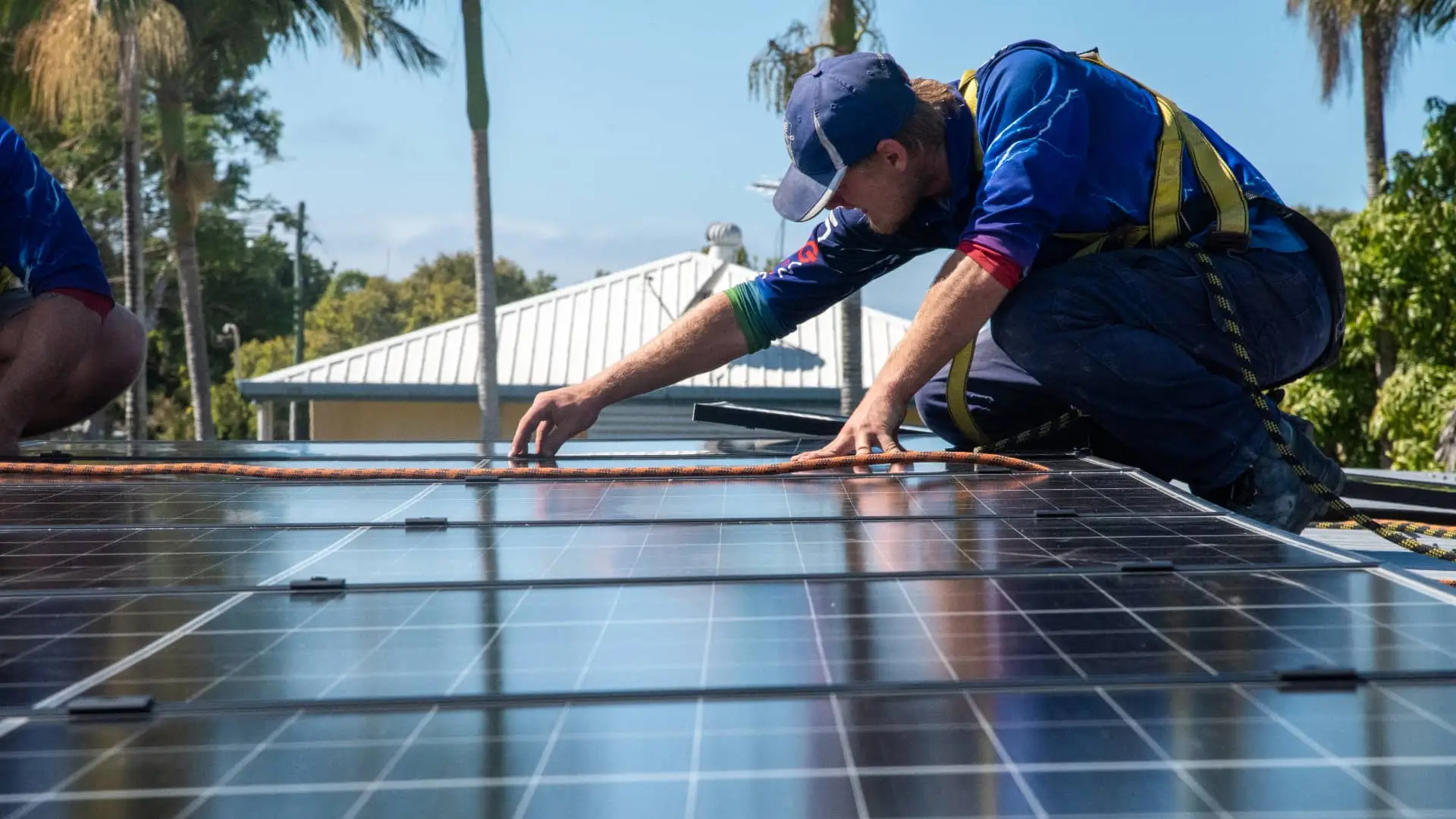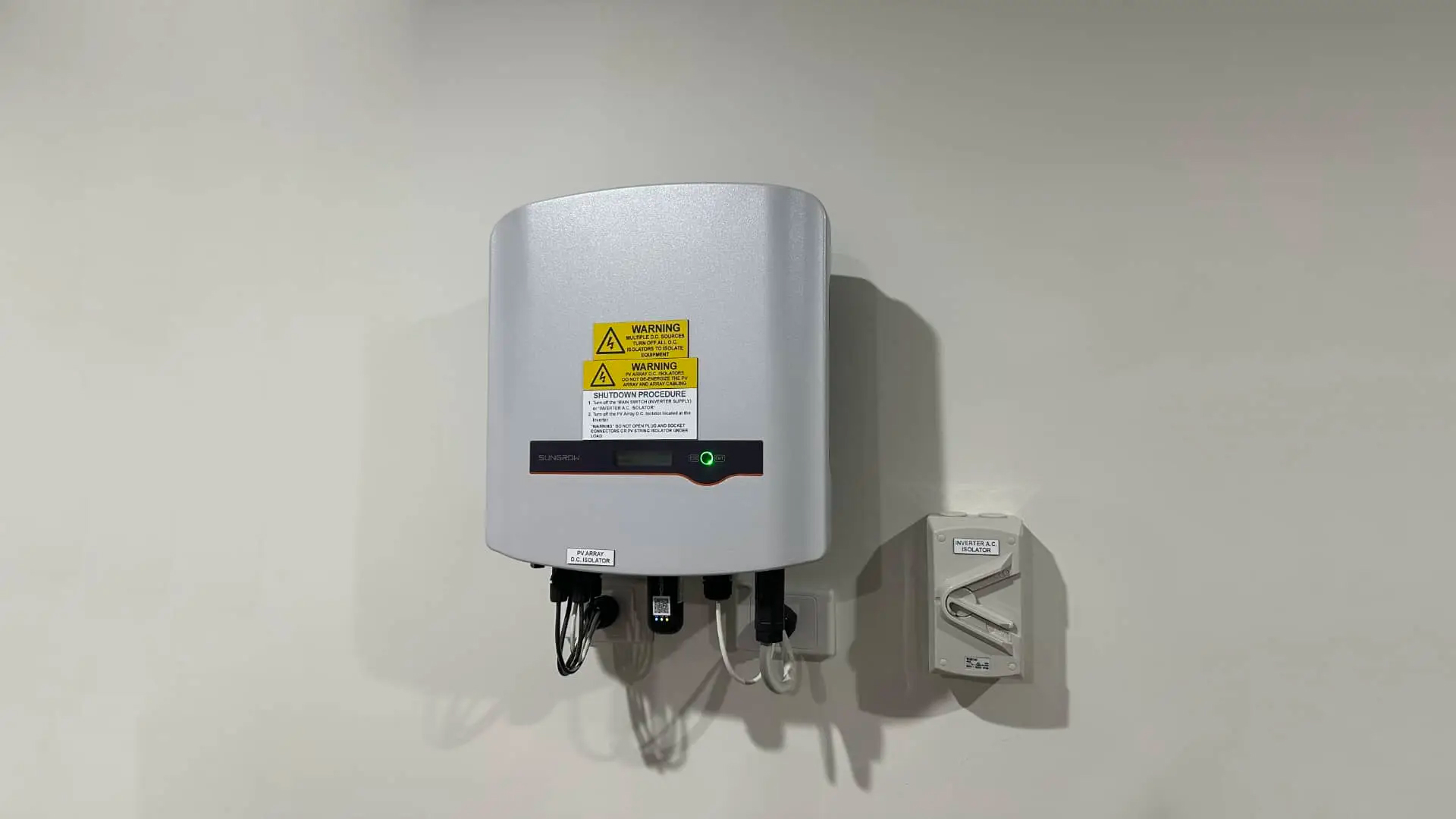Solar panels are an excellent way to harness renewable energy and reduce your carbon footprint. They generate electricity by converting sunlight into usable energy, which can be stored in solar batteries for later use.
However, it is essential to ensure that your solar panels are effectively charging your batteries to optimise their performance. In this article, we will guide you through ten simple steps to check if your solar panels are charging your batteries properly.
Visual Inspection
Start by conducting a visual inspection of your solar panels and battery system. Look for any obvious signs of damage, such as cracks, loose connections, or physical obstructions that may prevent the panels from receiving sunlight.
Inspect the surface of the panels for dirt, debris, or shading that may affect their performance. Clear any obstructions and clean the panels if necessary.
Solar Panel Indicator Lights
Many solar panel systems come with built-in indicator lights to display the charging status. Check if the indicator light on your solar panels is lit, which usually indicates that the panels are receiving sunlight and charging your batteries.
If the light is not illuminated, it may suggest a problem with the panels or the connection to the batteries.
Battery Voltage
Measure the voltage of your batteries using a voltmeter or multimeter. The voltage should gradually increase throughout the day as the batteries charge. Connect the voltmeter to the battery terminals and take note of the voltage readings.
Compare the readings with the manufacturer’s specifications to ensure they are within the expected range. Lower-than-expected voltage may indicate a charging issue.
Solar Charge Controller
Examine the solar charge controller, which regulates the charging process between the solar panels and batteries. Most charge controllers have LED lights or digital displays that show the charging status.
Confirm that the controller indicates the panels are actively charging the batteries. If the controller does not display any charging activity, there may be a problem with the charge controller or the connection between the panels and the controller.
Battery Monitor System
If you have a battery monitor system installed, it can provide detailed information on the charging status. Monitor the voltage, current, and state of charge displayed on the monitor to verify if your solar panels are charging the batteries effectively.
Check if the battery voltage and current values correspond to the expected levels during charging. An accurate battery monitor system can provide valuable insights into the charging process.
Energy Production
Monitor the energy production of your solar panels. If you have a solar energy monitoring system, it can provide real-time data on the amount of energy your panels are producing. Compare this with your battery’s capacity to assess whether the energy generated is sufficient for charging.
If the energy production is consistently low or insufficient to charge your batteries, it may indicate a problem with the panels, such as poor positioning or reduced efficiency.
Load Consumption
Consider the load consumption in your system. If you are using more electricity than your solar panels can produce, it may not be possible for them to charge the batteries fully. Optimise your energy usage by reducing unnecessary loads or considering additional solar panels if needed.
Calculate the total energy consumption of your appliances and compare it with the energy production of your solar panels. Adjust your energy usage to ensure that the panels have enough capacity to charge the batteries.
Time of Charging
Monitor the time it takes for your batteries to reach a full charge. If you notice that it takes significantly longer than usual or the batteries never reach full capacity, it could indicate an issue with your solar panels or charging system.
Keep track of the time it takes for the batteries to charge from a low state of charge to full capacity. If the charging time is consistently longer than expected, it may be necessary to investigate potential issues with the panels, charge controller, or battery condition.
Weather Conditions
Be aware of the impact of weather conditions on solar panel performance. Cloudy days or shading from nearby objects can reduce the amount of sunlight reaching your panels, affecting the charging process. Ensure that your solar panels are installed in an optimal location to maximise exposure to sunlight.
Monitor the weather conditions and compare the energy production during sunny days versus cloudy days. If there is a significant drop in energy production during clear weather, it may be necessary to address shading issues or consider panel repositioning.
Professional Inspection
If you have followed the above steps and are still unsure if your solar panels are charging your batteries effectively, consider consulting a professional solar technician. They can assess your system, diagnose any potential issues, and provide expert recommendations for improvement.
A professional inspection can identify underlying problems that may not be apparent during a basic assessment and provide you with the necessary steps to rectify the situation.
Work With The Experts
Regularly checking if your solar panels are charging your batteries is crucial to ensure the optimal performance of your solar power system. By following the ten steps outlined in this article, you can monitor the charging status, identify any issues, and take necessary actions to maximise the efficiency of your solar panel system.
At SnapSolar, we work with homeowners and businesses in Queensland to ensure they get the most out of their solar systems. Contact us today for a professional assessment. Our experienced technicians will evaluate your solar panels, battery system, and overall energy setup.
Get Your FREE Quote Today & Save $$$!
Contact our team today and we'll get back to you as soon as possible to discuss your solar needs!
Get a FREE QuoteRelated Articles.

How are Solar Panels Installed?

Jackson Wyer

How Do I Read a Solar Inverter Display?

Jackson Wyer

Battery Booster Rebate Scheme 2024: What Queenslanders Need To Know!

Jackson Wyer

